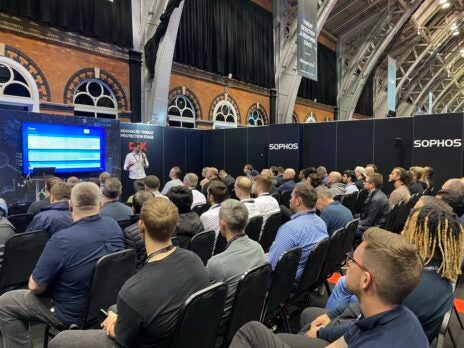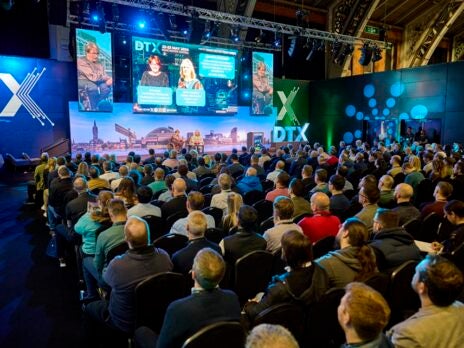By Janice McGinn
NCR Corp’s disastrous six-year relationship with AT&T Corp ended on December 31, 1996 (CI No 3,070). AT&T paid $7.4bn in acquisition costs, and while the liaison lasted, it spent a further $3bn. NCR’s performance declined dramatically, eventually reaching a nadir with losses of $2m per day. In little over two quarters, it achieved a remarkable turnaround, and it looks to be heading back to substantial profits. 8,500 job losses created a leaner organization and the remaining 38,600 staff are headed by a new chief executive, Lars Nyberg. Key to revival is its renewed focus on core business and its Teradata data warehouse, acquired in 1991, but kept on the backburner until fairly recently. The company is now on a world tour, running a series of seminars, and banging the drum for data warehousing. Heralding the Age of the Consumer, the collective wisdom of NCR’s wisemen is an old adage – the customer is king. We live in an age of mass production and frenetic consumerism. Customers are inundated with choices, and NCR argues that the commercial success stories of the future will be suppliers and manufacturers willing and able to customize their services. Information Technology’s role in forecasting and formulating highly-defined service levels is the creation of information warehouses and data marts. Sophisticated tools mine and analyze data. By communicating analyses and reports to front- line workers, preferably in real-time, suppliers provide staff with current key information. It is datawarehouse technologies that enable original manufacturers to inform their employees; to bypass middlemen and avoid sharing consumer-generated profits; and it is the gamut of online and web-based systems that empower consumers, enabling them to pick and choose best of breed services and goods. The Information Age – a mix of web and datawarehousing technologies is having a dramatic effect on our lives.
Disgruntled consumer
Dr Oren Harari, professor of management at the University of San Francisco, kicked off NCR’s Vienna seminar. He argues that when consumers complain about levels of service or quality, business should see these complaints not as minor irritations, but as opportunities. What the disgruntled consumer offers is not a complaint; it’s free consultancy. Harari reiterated that generating new business is generally less profitable and cost- effective than retaining existing custom. He calculates that: Reducing customer defections by only 5% can boost profits by 25% to 85%. By analyzing existing customer information, organizations can generate increased revenues and profits. By using sophisticated data mining techniques, they get to know their customers. The aim of cross-referencing and marketing tailored promotions becomes a reality. If suppliers know their customers’ tastes, buying patterns and the wider context of socio-demographic information, they can tailor promotions easily, marketing their products and services in a very focused way. Cost is key. Recruiting new business and custom is an expensive business that carries staff time and other overheads. Leveraging the existing base by drawing detailed customer profiles and identifying purchasing patterns and behavior, is an efficient and targeted marketing model. Numerous surveys show that over 70% of dissatisfied customers don’t complain. The upshot is that vendors don’t know where they’re going wrong, perpetuating the same mistakes. In today’s consumer society, says Harari, one bad experience is one too many. Consumers have too much choice to be forgiving of poor services. Loyalty is a rare commodity that must be cultivated, and Harari warns that the higher the spend, the less chance of repeat business. Happy customers are more loyal and more likely to recommend a service. Unhappy customers offer no favors, and word of mouth denigration has serious implications. Suppliers must get it right. First time. To do that they need to know their customers as well as the corner store or local bank manager circa 1950. Complaints, says Harari, are to be encouraged. The complaining customer, by passing his experience back to the supplier, provides valuable information that feeds into the data warehouse, where it contributes to the crucial analysis of service, quality and performance. Today’s commercial processes comprise a loop, one that is closed by datawarehousing technologies. According to Harari, something big is happening. Companies must wake up to the revolution, and those that don’t, will disappear. For instance, Toyota Motor Co’s new strategy involves a $13bn investment until the year 2000, aiming to create a 10% to 15% marketshare within a decade. Rapid production and development techniques will see a 50% increase in variety of available models. The drive and urgency behind this investment is Toyota’s recognition of the consumer revolution. The model of continuous improvement perfected by the Japanese is inadequate. Small, incremental gains can’t keep apace with the revolutionaries. Quoting Shakespeare to illustrate his point, Harari says: When the seas are calm, all ships alike show mastership in floating. The point is that we are now in a maelstrom of economic and social change. Unemployment is currently over 12% in most European countries; we’re on the cusp of EMU; the development of cross-industry alliances and the establishment of mass industrial conglomerations are creating instability in the economy. The character of our times is instability.
Unpredictability
The words we use to describe business and commerce are turbulence, competition, tight margins, volatility and unpredictability. The automotive industry, for example, is highly fragmented. Finance is characterized by new, ambitious players, and Citibank’s $1bn personal banking service, represents only a 1% marketshare. The top 10 banks have only 6% between them. Glaxo Wellcome Plc, with a mere 7% marketshare, is the number one player in the pharmaceutical sector. Middlemen are most at risk. Harari believes that brokers, agents and intermediaries are dead in the water. Within five years, he predicts that the insurance industry won’t exist as we know it today. With web and online operations, who needs the middlemen? The rate of industry exit is accelerating at a phenomenal pace. 50% of companies operating in the 1980’s no longer exist. The pace of life is and work has quickened enormously, and Harari concludes that 50% of the millennium’s growth-inducing jobs have not been created yet. Similarly, top management at 3M Co believe most Year 2000 revenue will derive from products and services not yet invented. Consumers are faced with more choices than ever before. They are fickle and intolerant of the substandard. The minimum a company must have in order to survive are top quality services and products. To prosper and grow requires more. It requires vision, imagination and flexibility. Harari cites industry leaders like Lew Platt, chief executive of Hewlett-Packard Co, who warned his employees that whatever made them successful in the past, won’t do in the future. If companies are to succeed, they must differentiate themselves from the herd. Harari’s thesis is they must join the Information Age.





